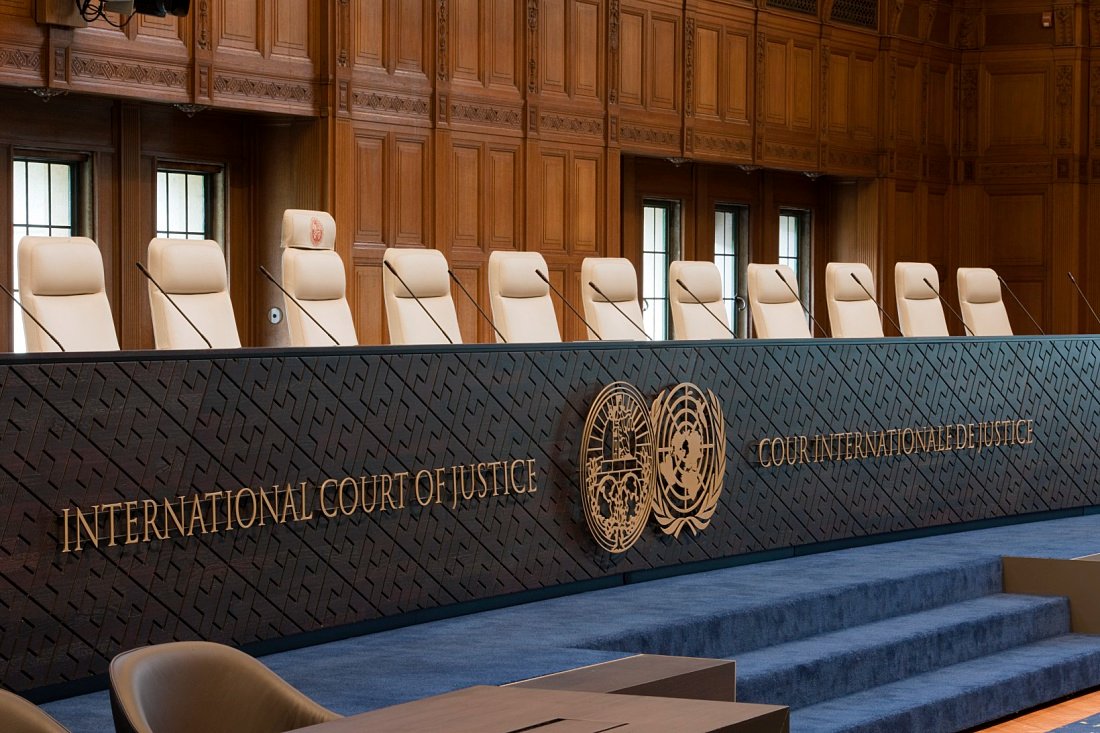If ICJ approves any or all of South Africa’s requests for provisional measures, it remains uncertain whether Israel will comply.
The International Court of Justice (ICJ) is set to issue an interim ruling in genocide charges against Israel this Friday, following South Africa’s lawsuit against the occupation.
South Africa’s Foreign Minister Naledi Pandor is set to travel to The Hague to be present at the court’s announcement, a government spokesperson said, as reported by Reuters.
On Friday, the ICJ will not address the core question of whether Israel is engaging in genocide. Instead, the focus will be on examining potential emergency measures sought by South Africa to curb Israel’s relentless assaults.
South Africa initiated legal action on December 29 by filing a lawsuit with the ICJ, also known as the World Court, accusing Israel of violating the Genocide Convention through its military actions in Gaza.
In hearings conducted earlier this month over two days, South Africa appealed to the ICJ to issue an immediate halt to Israel’s intensive military operations in the Palestinian enclave.
The African nation is seeking nine interim injunctions, urging the court to compel Israel to immediately halt its military operations, take measures to prevent the genocide of Palestinians, facilitate the return of displaced individuals to their homes, and provide access to essential humanitarian assistance.
The requested aid includes provisions for adequate food, water, fuel, medical and hygiene supplies, shelter, and clothing. South Africa is also calling for the ICJ to take punitive actions against those responsible for the genocide and ensure the preservation of evidence related to the case.
Emphasising the urgency of the situation, South Africa requested an expedited injunction.
The court is not obligated to prescribe the precise actions requested by South Africa but has the authority to articulate provisional measures it considers most suitable.
These measures are designed to mitigate the escalation of the dispute while the court examines the comprehensive case, a process that may extend over several years.
The ICJ’s deliberations involve a meticulous process, including thorough written submissions followed by oral debates and counter-arguments presented by the legal teams representing each state. Experts suggest that a verdict in this case may require three to four years.
During this period, interim measures may be approved if South Africa can sufficiently demonstrate that the allegations under the genocide convention are credible and that the Palestinian population in Gaza is genuinely and immediately at risk of irreparable harm.
Decisions made by the ICJ are legally binding, and there is no avenue for appeal, however, the high court does lack mechanisms for enforcement. If it approves any or all of South Africa’s eight requests for provisional measures, it remains uncertain whether Israel will comply.
Israel has dismissed the genocide accusations as “grossly distorted” and claimed its right to self-defence against Hamas.
Israel argues that its Gaza massacres are aimed at targeting Hamas, not Palestinian civilians.
The Israeli genocide in Gaza has so far killed at least 25,700 Palestinians and injured 63,740.
Although Israel frequently abstains from participating in international tribunals and UN inquiries, citing concerns about fairness and bias, the occupation went ahead and dispatched a high-ranking legal team for the two-day hearings earlier this month.
A court directive to cease operations would significantly impact the country’s global reputation. While the European Union has not commented on the issue, Israel has received support from its primary ally and arms provider, the United States.
As the ICJ deliberates over the case, Israel’s brutal demolition of the enclave and its people continues.
The Israeli Prime Minister Benjamin Netanyahu said earlier in January, that the occupational army will be “continuing the war until the end – until total victory, until we achieve all of our goals”.







